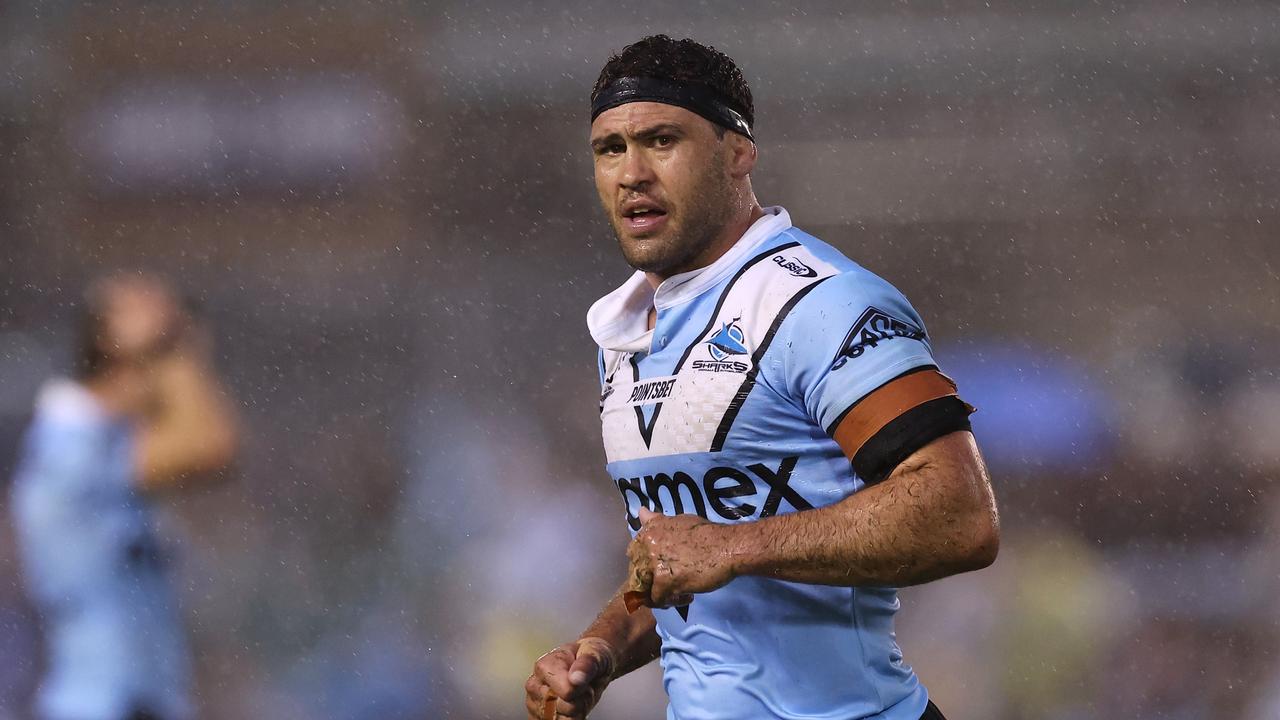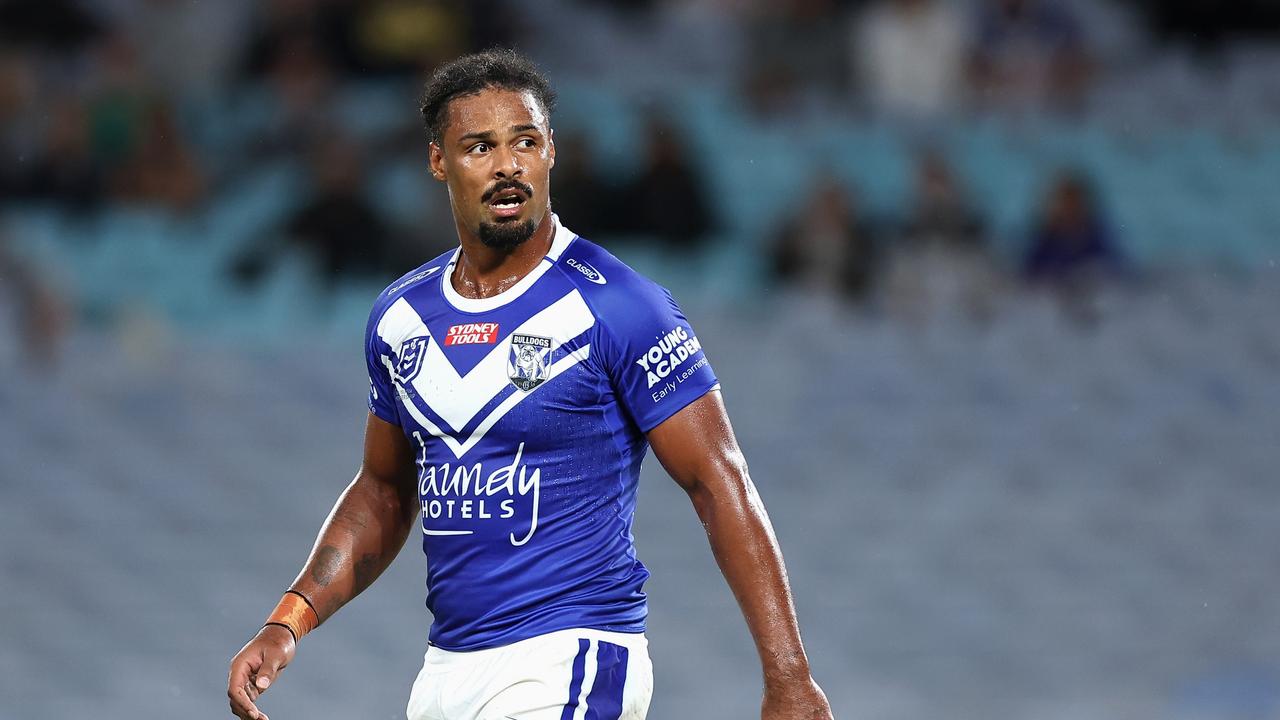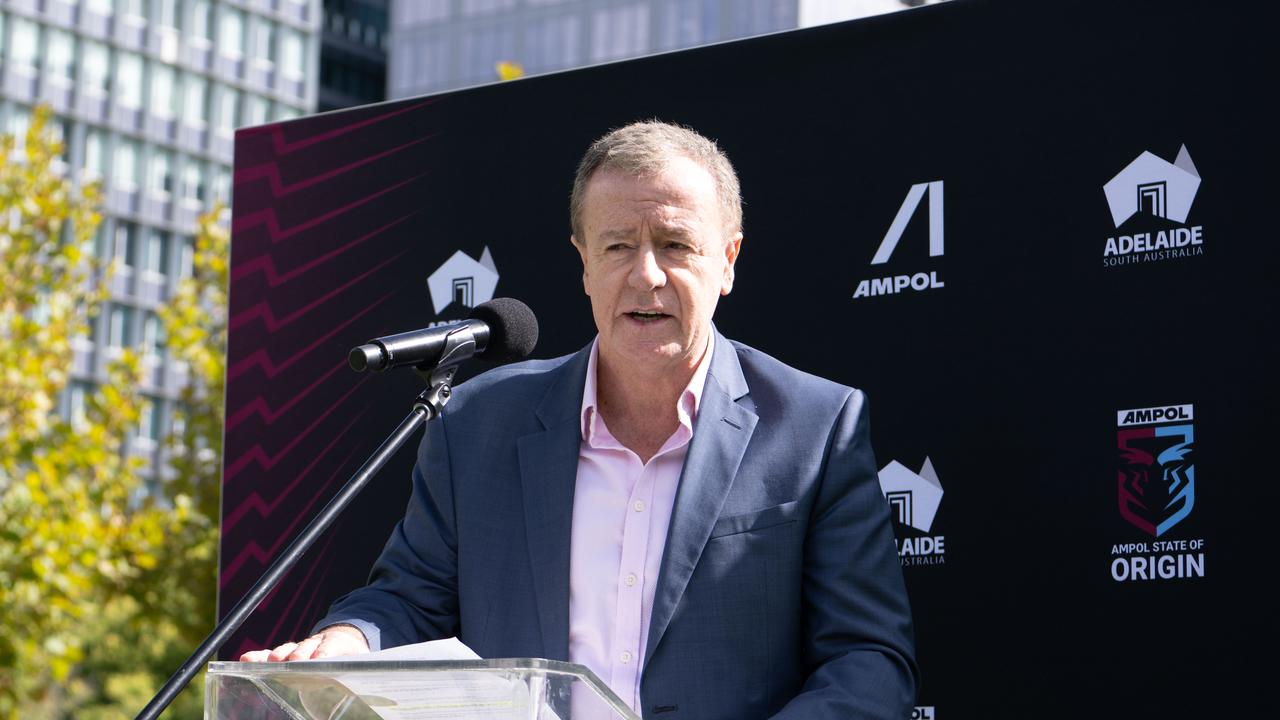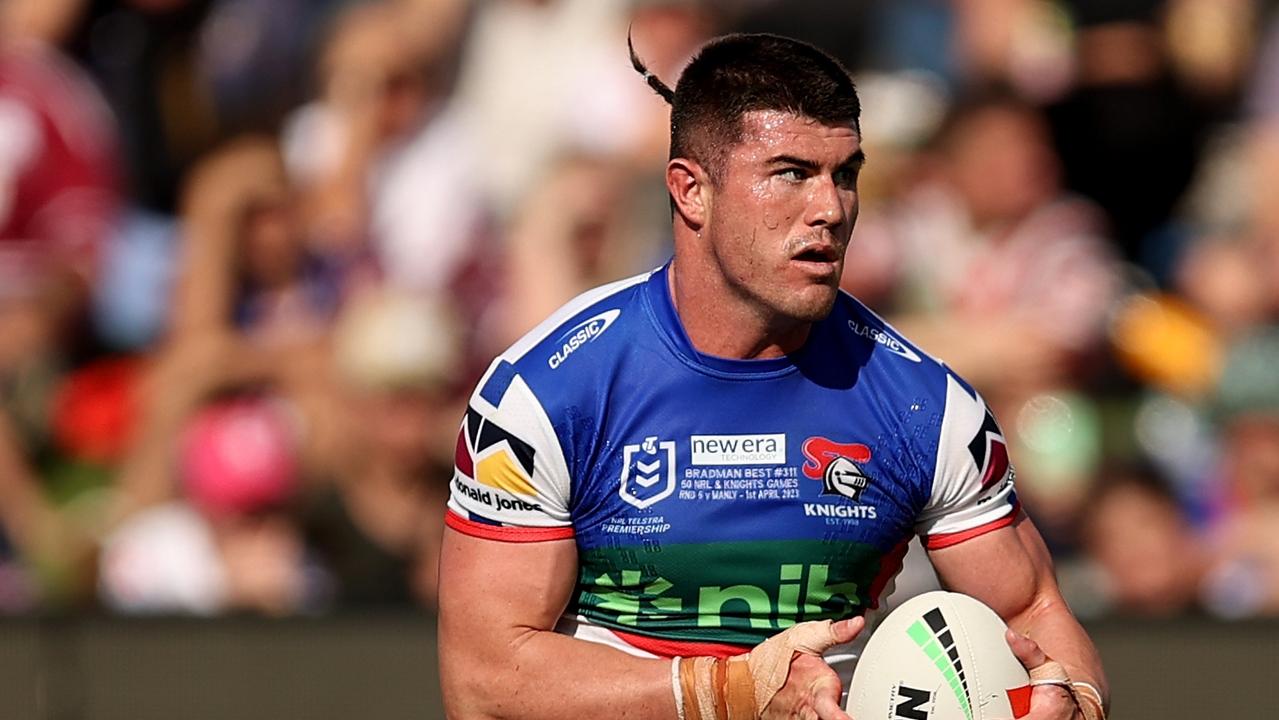‘It’s certainly not a crackdown’: NRL says hip-drops have been an issue for years as three players face bans
The NRL says the onus is on defenders to avoid making dangerous contact after three players were charged and face bans for hip-drop tackles out of Sunday’s games.

Graham Annesley has defended suggestions the NRL has launched a crackdown on hip-drop tackles after three players were sin binned and subsequently charged in the space of two hours on Sunday afternoon.
Marata Niukore and Dale Finucane were both marched for 10 minutes for their respective tackles in the Shire, while Jayden Okunbor was also sent from the field for his hip-drop on Jason Taumalolo at Accor Stadium.

The tackle is one of the worst in rugby league and the NRL has made it clear that it wants to stamp hip-drops out of the game in order to protect the players from catastrophic lower-leg injuries.
Finucane is facing 3-4 weeks on the sidelines after he was hit with a grade two dangerous charge, while Niukore (2-3 matches) and Okunbor (1-2) can accept smaller bans due to their better records.
The Sharks skipper was adamant that he hadn’t done anything deliberately wrong while making the tackle in slippery conditions.
“I said from my point of view that there was no intention whatsoever to have a hip-drop,” Finucane said after the game.
“Obviously Charnze Nicoll-Klokstad has got great footwork and just beat me with his footwork. With the rain and getting beaten by the footwork, I swung off to the back on the tackle so there was no malice or intent whatsoever.”

Annesley said the wet weather may have played its part in the tackle but stressed intent doesn’t play a part when players are charged and that the duty of care is on them to avoid making dangerous contact.
“These types of tackles, the NRL has been trying to eradicate from the game for several seasons,” Annesley said, not talking specifically about Sunday’s tackles.
“It’s certainly not a crackdown. The crackdown on these types of tackles has now been ongoing for several years.
“It (rain) could play a part, but players need to exhibit a duty of care when they play the game. Sometimes you need to adjust to the conditions, so while it may be a factor, it’s certainly not an excuse.
“Most incidents that take place in our game are either misjudgements, poor timing or accidental, but it doesn’t mean that we can say that they’re okay. If an offence occurs, it occurs.
“No one is saying that anyone goes out there to deliberately hurt someone or to deliberately commit an offence.
“We all know that the game happens at 100 miles per hour and people are trying to get the ball-carrier on the ground, and sometimes things go wrong.”
The NRL’s head of football also addressed comments made by Warriors coach Andrew Webster who questioned why play had gone back an entire set for Niukore to be sent to the sin bin.
The Warriors had defended their line but the hard work counted for little when the Sharks were awarded a penalty for an incident that had occurred 50 metres away.
But Annesley explained why the decision was made, with referees given the power to penalise teams after the fact if the offence warranted a player being sent to the sin bin or sent off entirely.
“We did see some situations (in previous years) where referees were taking play from one end of the field to the other for what were relatively minor infringements,” he said.
“The change we made was that the only circumstance under which the officials could take the play back downfield was where it was going to result in either a sin bin or a send off.
“What happened in that particular incident is that the wrong team would have been in possession had we just allowed play to continue, and he was definitely going to the sin bin for that outcome.
“We would have had a player sent to the sin bin with no benefit to the team that had been offended against other than the territorial advantage.”

Annesley also applauded the referees for making a number of correct calls over the weekend, including a Bunker decision to disallow the Knights a try when Bradman Best momentarily lost the ball close to the line.
“There’s always someone who wants to say that they’ve either been too analytical or they haven’t analysed it enough, and it should go one way or the other,” he said.



